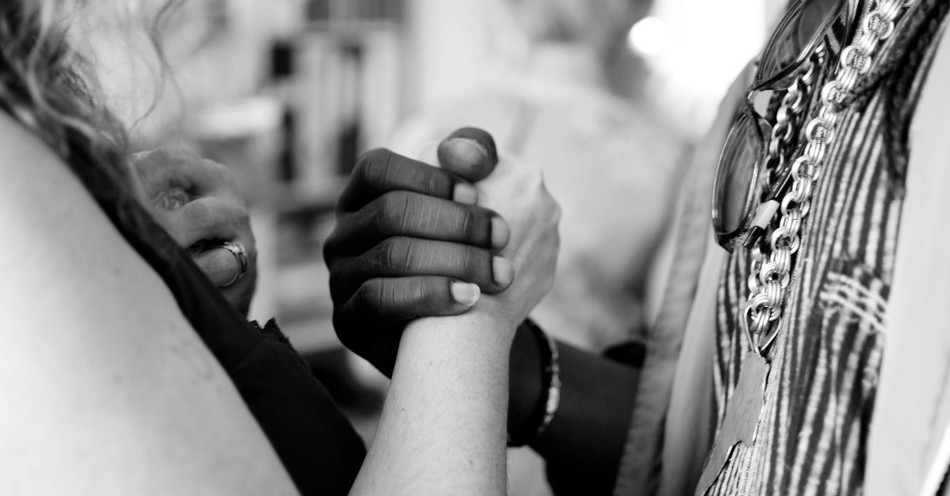Colossians 3:12-13 instructs, “Put on then, as God's chosen ones, holy and beloved, compassionate hearts, kindness, humility, meekness, and patience bearing with one another and, if one has a complaint against another, forgiving each other; as the Lord has forgiven you, so you also must forgive.”
This is a convicting list! As we read it, our hearts should be challenged because it’s not easy to live in this way. We also should be grieved because so much of our world is caught up in proving their point, declaring their own personal truth, and defending a side, that the humanity that should always be our primary consideration in these interactions is forgotten. God alone executes justice; we are called to offer our empathy and prayers.
Agreement Is Not Biblically Required for Us to Show Empathy
When responding to the pain of others in our world, we do not have to assess if we agree with who they are and everything they have done in their lives for us to offer empathy. We offer our support because those grieving, suffering, and struggling are children of God, worthy of His love! As believers, we are called to be tangible agents of His light and love.
Jesus articulates this truth in many different ways. In the famous Sermon on the Mount, he really brings home the truth that we are to love beyond what would ever feel reasonable in our flesh. Matthew 5:43-48 says,
“You have heard that it was said, ‘Love your neighbor and hate your enemy.’ But I tell you, love your enemies and pray for those who persecute you, that you may be children of your Father in heaven. He causes his sun to rise on the evil and the good, and sends rain on the righteous and the unrighteous. If you love those who love you, what reward will you get? Are not even the tax collectors doing that? And if you greet only your own people, what are you doing more than others? Do not even pagans do that? Be perfect, therefore, as your heavenly Father is perfect.”
As a parent, when my child comes to me crying because they hurt themselves doing something I told them not to do, I don’t laugh in their face, telling them they got what they deserved. I comfort them, I tend to their wound, and I show them love in their time of pain. Maybe at a later date, when their hearts and minds are ready to hear my instruction, I will review with the child I love the things that we have put in place in their home as guidelines designed to keep them safe, but in their moment of distress, I am a safe place they can go to get help and comfort.

Christians Are Called to Mourn with Those Who Mourn
In the same way, we are called to be a picture of Jesus, who is the good shepherd to the world. We offer encouragement, kindness, humility, meekness, compassion, forgiveness, and patience to the suffering world. Romans 12:15 says it this way, “Rejoice with those who rejoice, weep with those who weep.” Our empathy is not conditional, and it’s born out of the love we have for Christ. We love others because he first loved us, even when we were yet sinners!
As a foster parent, I empathize with my children by first recognizing the devastating loss they have to bear when their child is separated from them. I have to walk in humility, trusting that God alone is in control of the destinies of the children we both love. I reserve my right to judge, as God alone knows the plans he has for both the parents and children we interact with in this role. We offer kindness even when our hearts are deeply grieved by the choices made by the many parties involved in this world, because our calling is to be a light in this dark system.
We can’t be a light if our words are acting like a bulldozer, tearing down the very people and parties we have been called to support. I promise this is not at all easy; we need the Holy Spirit alive and at work in us to even begin to do this well. When we fail at living out this God given mission, we must humbly ask for forgiveness. I promise I’ve had to apologize many times to Social Workers who heard me at my worst. Asking and offering forgiveness is a vital part of living with biblical empathy.
Beware of Making Judgements
In our world, there is pressure from all sides to judge things rightly, publicly, quickly, and on our own. This is a false and dangerous inclination. In the same Sermon, Jesus warns us against this posture. Matthew 7:1-2 says,
“Do not judge, or you too will be judged. For in the same way you judge others, you will be judged, and with the measure you use, it will be measured to you.”
Jesus gave a blanket commandment not to judge. He didn’t say, sometimes judge when you really can’t stand the person. He didn’t give us a free pass on judgment for our social media accounts. He just says don’t do it because when you do, there will be consequences that come back on your own head. One of the most obvious consequences is that we close the door to being in a relationship with those we cast our harsh judgments on. We stop being a loving neighbor. Even worse, our judgments are almost always wrong because God alone knows the entirety of each person's story and heart.
When you feel pressured to judge, try these biblical ways of coming alongside others.
What Does it Mean to Lament?
Jeremiah 4:8 declares, “For this put on sackcloth, lament and wail, for the fierce anger of the Lord has not turned back from us.”
When we watch events unfold in our world that grieve us, we as a people should lament. We wail out in desperation and ask the Lord to intervene on our behalf. It is perfectly biblical to grieve, to feel brokenhearted, and to experience deep sadness over the evil that is at work in our world.
Prayerful Intercession Is Crucial in Our Broken World
1 Timothy 2:8 says, “I desire then that in every place the men should pray, lifting holy hands without anger or quarreling.” In every place we are called to pray! Our prayers are powerful, and they are the best way to call down God’s justice, healing, and grace into our world. We must lift our hands to the Lord and ask that he come make right what is wrong. Ask him to comfort the hurting. Strengthen us as we walk through dark seasons. To give us wisdom on how to respond to difficult circumstances. Rely on God to help us respond to our world and its suffering.
Loving Other People Trumps Everything Else
1 Corinthians 16:14 reminds us, “Let all that you do be done in love.” Every word, every response, every post, and every action is to be given lovingly. Love looks like the fruits of the Spirit at work in our lives. Pause before you respond, and ask, “Is this loving?” That is how we show the world God’s empathy. It’s how we stay salty and bright in a tasteless and dim world.
Photo Credit: ©Unsplash/ Aarón Blanco Tejedor





